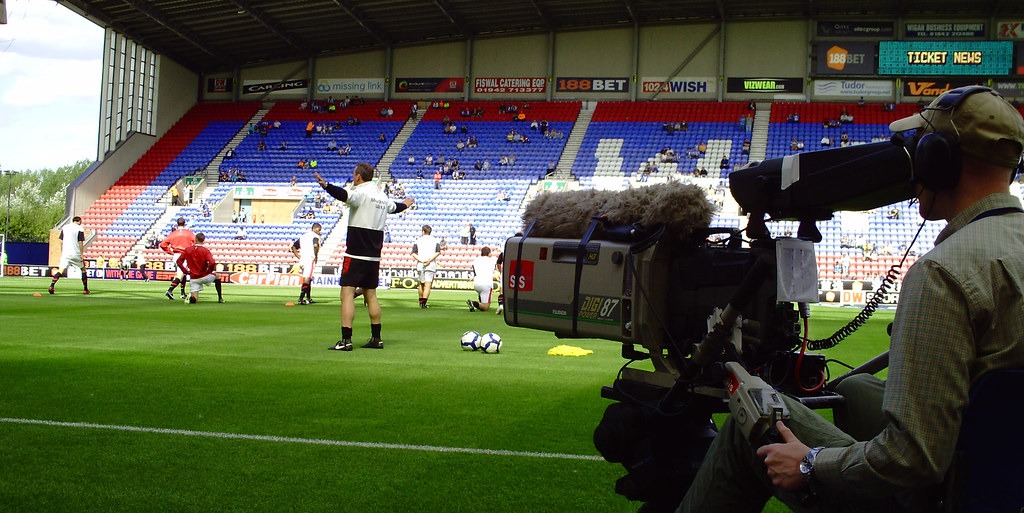New TV rights deal means 70 more live Premier League games a season: But is it enough?
By now, many of us have seen the ads announcing that as of this season, an extra 70 Premier League games will be available to watch legally on television. While this is presented to us as a huge victory for football fans, and is certainly an improvement, is this not just a partial improvement on a bad situation?
What is the new deal?
As of this season, Sky will be broadcasting a minimum of 215 Premier League matches, a huge increase from their previous 128. Some of these will be poached from Amazon Prime, which will have no games next season, with the rest being games that would have remained entirely untelevised in the UK if not for this deal. Sky also has exclusive rights to games rescheduled to 2pm on Sundays due to teams’ European commitments, so it will likely broadcast even more than the original 215. A further 52 games will be available through TNT Sports, a repeat of last season.
What does this mean for fans?
This means that from this season until at least May 2029, fans can access a minimum of 70 more games with one less subscription. Sky also has first dibs on what games they broadcast, has exclusive rights to Boxing Day fixtures, and will be showing every single game of the final matchday live. With all of this, fans could get by pretty well on a Sky subscription alone.
So among this news, why am I choosing to be so dour? Well, 270 live games may sound like a lot until you realise that 380 Premier League fixtures are contested each season. That leaves us with approximately 30% of games remaining untelevised, with the best case being more like 25%.
Why are so few games available?
The reason behind the lack of broadcasting for so many games is the infamous 3pm blackout. Introduced in the 1960s, the blackout states that between 2:45pm and 5:15pm on Saturdays, transmitting live football is not allowed. Therefore, the Saturday 3pm kick-offs, which make up a large portion of weekly games, are impossible to watch live (legally) in the UK. The reasoning behind this is well-intentioned; the belief is that should these games be broadcast, in-person attendance for clubs lower down the football pyramid would suffer as fans instead choose to watch the bigger teams on television. However, good intentions don’t always mean good results, and over time, the need for such a blackout has come into doubt.
Is the blackout necessary?
The biggest point against the idea of a 3pm blackout is its lack of presence in the rest of the ‘big five’ leagues. Fans of these leagues can’t watch every single game, but generally can watch a substantial amount more than in England. Rather than a blackout, Germany has the second division games take place at 1pm local time, while the top-flight games begin at 3:30pm. This gives lower league fans time to watch their local team, get home, and be ready for first division games. Similar strategies of avoiding clashes continue down the German footballing pyramid with seemingly little effect on match attendance. It’s not a perfect system, but I imagine it would sound much more appealing to many English fans than missing out on games altogether.
I don’t mean to act like there’s no legitimate concern from smaller clubs as to their fate should the blackout end. Valuable grassroots football deserves to be protected, but I believe there are other ways to do this that don’t inconvenience fans wanting to watch the biggest games. If the 3pm blackout were to be removed, it would have to come with a vast restructuring of the fixture layout throughout the pyramid, similar to that in Germany, but I would go even further.
The wealth disparity between the Premier League and the rest of the pyramid is unreasonably massive. The logic behind this is clear; the Premier League brings in more money, and its teams should earn more from it, but they are standing on the shoulders of hundreds of smaller clubs. Without these smaller clubs, English football wouldn’t be what it is culturally, not to mention the entry point these teams provide for talent who could go on to larger teams.
If more wealth were allowed to trickle down from the richest league in the world, then lower league teams wouldn’t be so singularly reliant on ticket gates for survival. Of course, every attempt should be made to mitigate a drop-off if the blackout were ever to be removed, even for non-financial reasons. But fans shouldn’t be the ones forced to bear this burden by being denied access to games. Instead, larger clubs should pay more for the pyramid that enriches them in the first place, and fans should be allowed to access the vast majority of games. Or, you know, just use a VPN.

Comments